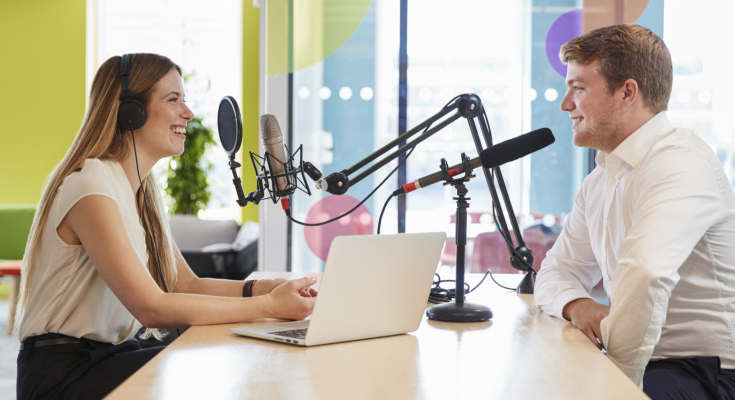Podcasting is becoming increasingly popular in the digital space for a number of reasons, including how informative many of them are, their overall entertainment value, and just how portable they are (you can listen to them on the go). Podcasting is so beneficial for the advancement of projects, initiatives, individual and business brands, that they are a recommended component of any content production and digital marketing strategy. Still, even with understanding the benefits, knowing the importance and potential impact of podcasting and doing it well is not one of the same. As such, we take a closer look below at the important components of producing and publishing a great podcast your audience will begin to love.
The Foundation of Quality
The best podcasts have a combination of high-value information and well-produced content. This combination ensures that the audience gets value from the topic and information of the podcast (even the entertainment-focused ones) and is able to do so in an environment of pleasant audio quality. While knowledge and expertise will determine what is shared in the podcast, there are a few more moving parts to consider where the production of the same is concerned. High-quality production will need a combination of the following:
1. Technological Know-how
Yes, it is true that you need not be the most tech-savvy person on the planet to produce a high-quality podcast. However, it does take some understanding of what is involved in the recording and production process to help produce the best-sounding podcast. Understanding the basics of audio recording and production can help ensure you get it right from the moment you hit record to the moment you hit export on the final audio. Basic knowledge will include recording settings, understanding basic speech audio equalization, time-shifting, fading, and other mixing features.
2. Appropriate Software
Just as how not being the most tech-savvy person on the planet is not a requirement for great podcast recording and production, so too is not having the latest or most expensive equipment. The popularity of podcasting has somewhat resulted in the affordability and operational simplicity of podcast production. This is particularly true if you are opting for operating a podcasting studio on your own. That said, affordable USB mics, free Digital Audio Workspace (DAW) software like audacity, and creative commons instrumentals are a great and basic place to start.
3. Secure a Podcasting Studio
Of course, depending on your resources (financial and otherwise) and your technical know-how, outsourcing services from an established podcasting studio, like https://www.realnewscn.com/host-your-own-show/, may be the best option for you. Thankfully, there are a lot of affordable options in this regard that allows you to access their resources reliably, sustainably, and in a budget-friendly way. or building a simple one yourself. Some of the options mentioned concerning hardware (mics, headsets, etc.) and software (DAWs, music, etc) will all factor into building your own podcasting studio. Of course, it is important to assess both the short-term and long-term viability of both options regarding your bottom-line and brand direction. It is okay, for example, to start off using an outsourcing option and then move on to having your own setup over time.




